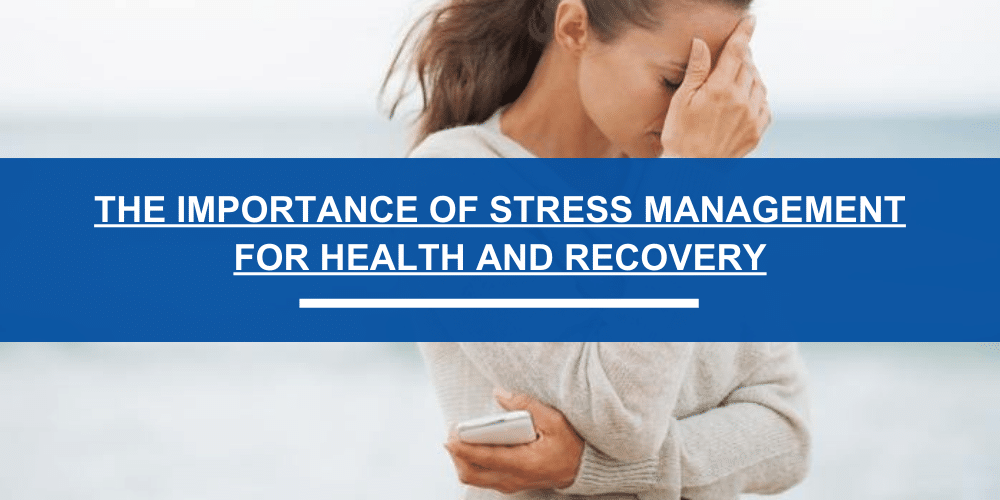In today’s fast-paced world, stress has become a common companion for many people. Whether it’s the demands of work, family responsibilities, or managing a health condition, stress can take a significant toll on both the body and mind. What your patients may not realize, however, is just how critical stress management is when it comes to their overall health and recovery.
Chronic stress not only hinders physical recovery but can also contribute to the development or exacerbation of various health problems. Whether your patients are recovering from surgery, managing a chronic condition, or simply trying to live a healthier lifestyle, understanding the effects of stress—and how to manage it effectively—is an important part of the healing process.
The Physical Impact of Stress
When patients experience stress, their bodies enter a state of heightened alertness, commonly known as the “fight or flight” response. While this response is beneficial in short bursts (helping the body react quickly to immediate threats), chronic stress can have detrimental effects on overall health and recovery. Here’s how:
- Weakened Immune System: Chronic stress can suppress the immune system, making it harder for the body to fight infections and recover from illness or injury.
- Increased Inflammation: Stress can trigger the release of cortisol, a hormone that, in high levels, can contribute to inflammation. Persistent inflammation can hinder the healing process and worsen conditions like arthritis or musculoskeletal pain.
- Muscle Tension: Stress often leads to muscle tension, which can cause pain and discomfort, particularly in areas like the neck, shoulders, and back. Over time, this can result in chronic pain or increase the risk of injury.
- Disrupted Sleep: Stress is one of the leading causes of sleep disturbances, which, as mentioned earlier, play a significant role in recovery. Poor sleep further exacerbates the negative effects of stress on the body.
The Mental and Emotional Toll of Stress
Stress doesn’t only impact the body; it can also take a serious toll on mental and emotional well-being. For patients dealing with health issues, the added stress of pain, treatment plans, or even the uncertainty of recovery can lead to feelings of anxiety, depression, and frustration. This emotional burden can, in turn, slow the healing process and make it harder for patients to adhere to treatment plans or stay motivated throughout their recovery journey.
For patients recovering from surgery or injury, stress can reduce their ability to cope with discomfort or setbacks, leading to feelings of helplessness or discouragement. Learning to manage stress is just as crucial as following a physical therapy program or taking medications.
How Stress Management Improves Recovery
Managing stress can have a profound impact on both the physical and emotional aspects of health and recovery. By incorporating stress management techniques into their daily routine, patients can:
- Boost Immune Function: Reducing stress allows the immune system to function more effectively, promoting faster recovery and reducing the risk of infection.
- Lower Inflammation: By managing stress, patients can help reduce the inflammatory response in the body, which can improve healing outcomes, especially for those with conditions like arthritis or musculoskeletal injuries.
- Improve Sleep Quality: Stress management techniques can promote relaxation and improve sleep quality, ensuring the body gets the restorative rest it needs to recover properly.
- Enhance Emotional Resilience: Learning to manage stress can improve patients’ emotional resilience, helping them cope with the mental and emotional challenges that often accompany illness, injury, or recovery.
Stress Management Techniques for Patients
To help patients manage stress effectively, suggest a variety of strategies that they can incorporate into their daily lives:
- Mindfulness and Meditation: Mindfulness practices, such as meditation, deep breathing, or yoga, can help reduce stress by promoting relaxation and focusing the mind on the present moment.
- Exercise: Regular physical activity is a powerful stress reliever, as it releases endorphins (the body’s natural mood boosters). Even light exercises like walking or stretching can help alleviate tension and reduce stress.
- Time Management: Encouraging patients to prioritize tasks and set realistic goals can reduce the feeling of being overwhelmed, allowing for a more balanced approach to daily responsibilities.
- Social Support: Talking to a friend, family member, or therapist can help alleviate emotional stress. Encouraging patients to stay connected with loved ones can provide a sense of community and support.
- Relaxation Techniques: Simple activities such as taking a warm bath, listening to calming music, or engaging in hobbies can help reduce stress and promote relaxation.
Conclusion
For your patients, stress management is not just an optional part of health—it’s essential for overall well-being and recovery. By addressing both the physical and emotional impacts of stress, patients can improve their ability to heal, manage symptoms, and enjoy a higher quality of life. Encouraging patients to incorporate stress reduction techniques into their routine can significantly enhance their recovery process and help them maintain long-term health.
Incorporating these strategies into their daily lives can make a huge difference in how patients feel and how they respond to treatment. By taking control of stress, patients can achieve better outcomes, improve their emotional health, and experience a smoother, more successful recovery.







